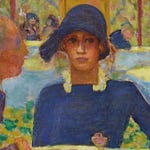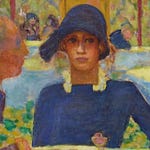WHEN SHE TURNED THE CORNER and saw home, she knew what she was going to do. It made her shiver, and it made her smile.
The Ernies were in the kitchen, waiting for dinner. Her mother was at the stove. Ariane had to explain why she had come back, and she hadn’t prepared anything. She improvised, said that they didn’t need her, that the resort wasn’t getting enough business for them to keep her on for the colder months, that she might go back in the spring, but that for now they’d let her go. They all acted as if they accepted this explanation, but Ariane saw the suspicion in her brothers’ eyes. They never quite believed anything that she said.
When dinner was over, the Ernies exchanged a look and got up to go out and see what trouble they could get into. Ariane got up, too. She caught up with them and grabbed them by their shirts.
“Come here,” she said, pulling on them. “Come here. I want to show you something.” She pulled them to her room and shut the door. She turned and faced them. She was wearing a shirtwaist dress. She began unbuttoning it, and then the Ernies snorted and elbowed each other. When she reached the waist, she slipped the dress off her shoulders and let it fall around her ankles.
Little Ernie narrowed his eyes at the sight of the bruises. “Geez,” he said.
Big Ernie began cracking his knuckles. “What the hell happened to you?” he asked.
She told them, more or less, and they went out into the night, without a word. Ariane watched television for a while and then went to bed.
AT BREAKFAST the next day the Ernies muttered together in low tones, and seemed pleased with themselves, like journeymen who have done a nice piece of work.
She sat across from them, poking her spoon in her cereal, wanting to ask them what they had done, exactly what, but she asked them nothing. She watched them begin to eat, and she noticed their battered hands and their hearty appetites, their huge satisfaction with whatever it was that they had done, their complete lack of anything like guilt, and she felt certain that they had done exactly what they ought to have done, as agents of justice, no more—or they would have felt guilty, would have shown some sort of remorse if they had twisted punishment into crime—and certainly no less, since they were so clearly satisfied. They must have done, she assured herself, only what was fitting, what was deserved.
She began to eat with an appetite that astonished her.
[to be continued]
Have you missed an episode or two or several?
You can begin reading at the beginning or you can catch up by visiting the archive or consulting the index to the Topical Guide. The Substack serialization of Little Follies begins here; Herb ’n’ Lorna begins here; Reservations Recommended begins here; Where Do You Stop? begins here; What a Piece of Work I Am begins here.
You can listen to the episodes on the Personal History podcast. Begin at the beginning or scroll through the episodes to find what you’ve missed. The Substack podcast reading of Little Follies begins here; Herb ’n’ Lorna begins here; Reservations Recommended begins here; Where Do You Stop? begins here; What a Piece of Work I Am begins here.
You can listen to “My Mother Takes a Tumble” and “Do Clams Bite?” complete and uninterrupted as audiobooks through YouTube.
You can ensure that you never miss a future issue by getting a free subscription. (You can help support the work by choosing a paid subscription instead.)
At Apple Books you can download free eBooks of Little Follies, Herb ’n’ Lorna, Reservations Recommended, and Where Do You Stop?
You’ll find overviews of the entire work in An Introduction to The Personal History, Adventures, Experiences & Observations of Peter Leroy (a pdf document), The Origin Story (here on substack), Between the Lines (a video, here on Substack), and at Encyclopedia.com.












